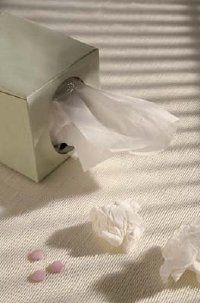In medical terms, having immunity means that you have resistance to infection or a specified disease. So if you have low immunity, it means your immune system isn't up to par and that you have a greater chance of getting the germ-du-jour. There are many factors that affect your body's response to a foreign invader, including how you're feeling at the moment you're introduced to a suspect germ. But if you consistently end up with the latest flu bug or stomach virus, your immune system may be running on empty.
Imagine your immune system as the front line in your body's war against foreign invaders. The vast network of glands, tissues, and cells are all soldiers working together to get rid of bacteria, viruses, parasites, and anything that invades their turf. The major troops in this war are the lymphatic system, made of the lymph nodes, thymus, spleen, and tonsils; white blood cells; and other specialized cells such as macrophages and mast cells. Each of these troops has a specialized job in enhancing the body's ability to fight off infection.
Advertisement
Lymph nodes are responsible for filtering out waste products from tissues throughout the body. Under the lymph nodes' command are cells that overtake bacteria and other potentially harmful foreign bodies and crush them like ants. That's why your lymph nodes swell up like golf balls when you are actively fighting off an infection.
The thymus is your immune system's stealth warfare command center. You may not have heard of the thymus, but without it you would be one sick puppy. The thymus is a gland that produces many of those disease-fighting foot soldiers -- the white blood cells that come to your defense against many types of infections. And the thymus produces hormones that enhance your immune function overall. So if your thymus isn't working as it should, your body may have trouble fighting off infection.
The spleen is vital to your immune defense. It produces white blood cells, kills bacteria, and enhances the immune system overall. White blood cells are your body's main defense in the battle against infection. White blood cells with names such as neutrophils, eosinophils, basophils, T cells, B cells, and natural killer cells, are all part of the vast army of disease assaulters.
When the Enemy Strikes
When something enters your body that is viewed by the immune system as harmful, your body goes into a state of heightened alert. When your immune system is healthy and all systems are go, these foreign invaders, or antigens, are typically met by a barrage of antibodies, which are produced by white blood cells. These antibodies latch on to antigens and set into action all the events that lead to the invader's eventual demise.
If things in your immune system are not working properly, you become less able to fight off those foreign invaders. Eventually they set up shop in your body and you get sick. An impaired immune system can make you more susceptible to colds and other merely frustrating illnesses, but it can also make you more at risk for developing cancer.
Science is proving that getting enough of the right nutrients can help you build your immune system. Scientific studies are discovering that avoiding something as simple as a cold or something as life threatening as cancer may all be affected by what you stock in your kitchen. In the next section, learn some of the home remedies that will help you fend off sickness.
For more information on low immunity and the health problems it can cause, try the following links:
- To see all of our home remedies and the conditions that they treat, go to our main Home Remedies page.
- Find out what causes harmful infections and how to prevent them.
- Read this informative article and find out how your immune system works.
- Learn about the health benefits of garlic, one of the most effective home remedies for immunity.
This information is solely for informational purposes. IT IS NOT INTENDED TO PROVIDE MEDICAL ADVICE. Neither the Editors of Consumer Guide (R), Publications International, Ltd., the author nor publisher take responsibility for any possible consequences from any treatment, procedure, exercise, dietary modification, action or application of medication which results from reading or following the information contained in this information. The publication of this information does not constitute the practice of medicine, and this information does not replace the advice of your physician or other health care provider. Before undertaking any course of treatment, the reader must seek the advice of their physician or other health care provider.
Advertisement
